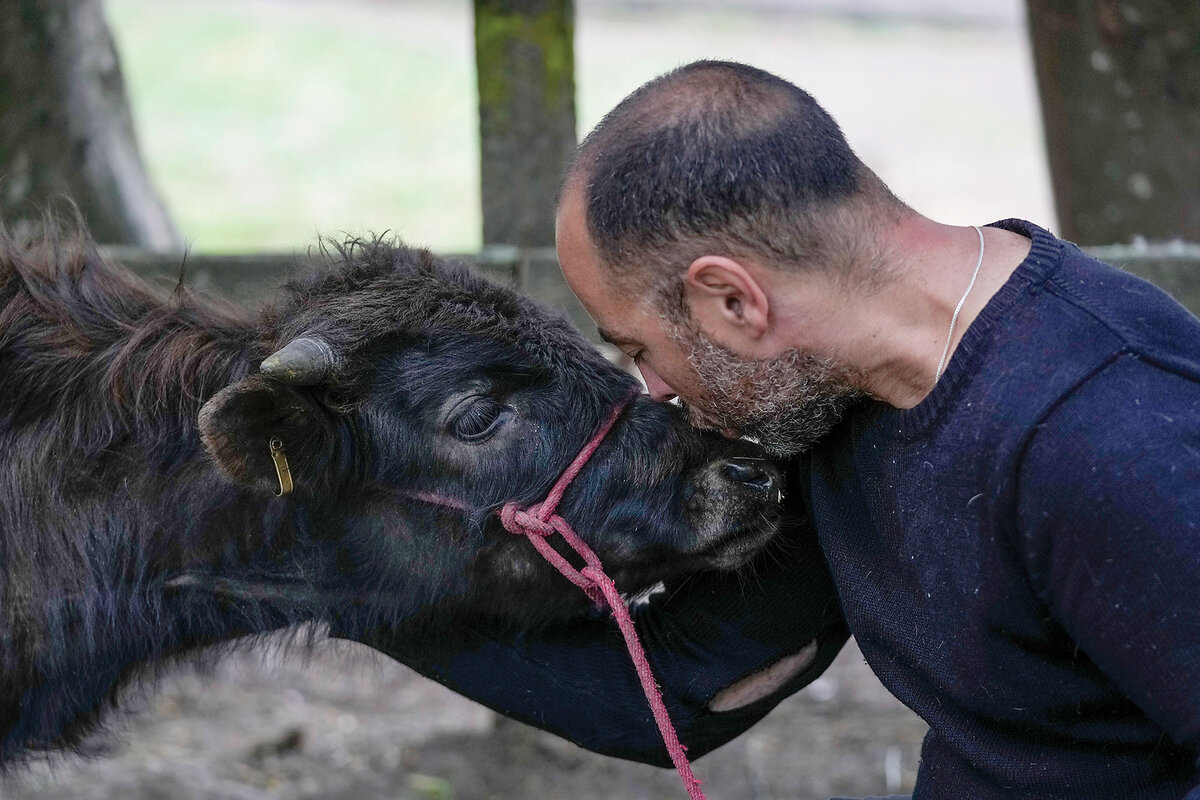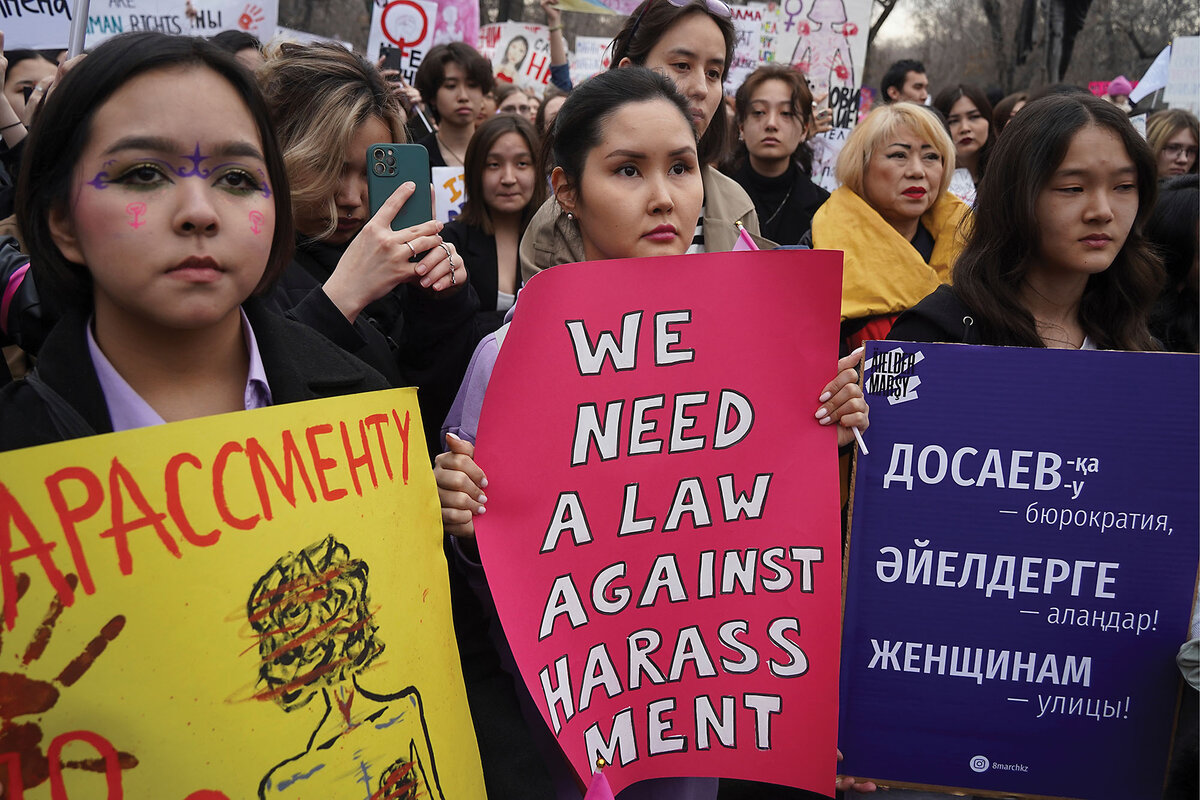Legislating compassion: From bullfighting bans to domestic violence protections
Loading...
Movies and television are making more use of Asian languages as storytelling tools
Hollywood used to eschew foreign languages because of American audiences’ distaste for subtitles. But with 50% of viewers now preferring to watch content in any language with English captions, a growing pool of Asian and Asian American projects is using non-English dialogue to enrich world-building.
In older films, less attention was paid to accuracy and one Asian language served as well as another. Now, authenticity’s value has increased. When filmmaker Lulu Wang pitched her 2019 movie “The Farewell,” studio executives pressured her to translate the mostly Mandarin script into English. Yet her 2024 series “Expats” uses dialogue in Tagalog and Cantonese as its fifth episode focuses on Filipino domestic workers and everyday Hong Kong citizens.
Why We Wrote This
In our progress roundup, countries that have lagged behind others in their policies make changes to catch up. Colombia joins a wave of countries that have banned bullfighting and Kazakhstan strengthens protections against domestic violence.
In 2020, “Parasite,” which is in Korean, became the first foreign-language film to win best picture at the Oscars. “Everything Everywhere All at Once,” which mixes Cantonese, Mandarin, and English, won best picture in 2023.
Source: The New York Times
Colombia has banned bullfighting
A centuries-old tradition introduced during Spanish colonial rule, bullfighting has long been criticized by animal rights advocates as cruel and abusive. The animals are bred to be aggressive and are taunted during the bullfight before being killed.
While he was mayor of Bogotá, current President Gustavo Petro suspended bullfighting in the city in 2012, but the Constitutional Court’s recognition of bullfighting’s cultural value reversed that ban. Critics of the new national law passed by Congress say it will negatively impact the economies of several cities still holding bullfighting events, which draw thousands of spectators each year. Before the law takes full effect in 2028, the government is required to help workers in the industry find new employment.
Colombia joins five other nations in Latin America that have outlawed the tradition.
Sources: The Associated Press, Al Jazeera
In a near-unanimous vote, Liechtenstein’s parliament legalized same-sex marriage
The microstate, which is about the size of Washington, D.C., is the last German-speaking country to grant same-sex marriage rights and joins 21 other European states.
Liechtenstein legalized civil unions in a 2011 referendum. While the country’s monarch had opposed adoption rights for same-sex couples, the government granted them last year.
Liechtenstein’s population is majority Catholic, and Catholicism is the official state religion. The country hosted its first Pride event in 2022.
Sources: Politico, Reuters
Group therapy led by lay counselors is helping to combat depression
In Zambia, only about 25 psychologists and psychiatrists serve a population of 20 million. StrongMinds, an international nonprofit, trains community members to lead groups for better mental health.
The program uses interpersonal group therapy, which has proved useful because it can be adapted to local cultures. Participants learn strategies to cope with depression triggers such as the death of a loved one. The program focuses on women, who face higher rates of depression than men do.
Since StrongMinds started in 2013 in Uganda, over 500,000 people have been treated. Former clients report benefits that extend beyond their own health: more work participation, increased food security, and higher school attendance by their children. “Depression treatment can be, what we call, democratized,” said founder Sean Mayberry. “You can take it out of the hands of doctors and nurses and give it to the community itself.” New extensions of StrongMinds are operating in Kenya and the United States.
Source: Reasons to Be Cheerful
New penalties increase protections against violence for Kazakhstan’s women and children
During the high-profile trial of a former Cabinet minister who was convicted in May of murdering his wife, international public pressure mounted for change. Among 70 amendments, the new laws passed in April recriminalize “battery” and “intentional infliction of light bodily harm” after criminal penalties for both offenses were abolished in 2017.
Almost 17% of women ages 18 to 75 report having experienced physical or sexual abuse by a partner, according to government data. Police are now required to collect evidence in cases of domestic violence, shifting the burden away from survivors. The law also imposes criminal liability for sexual harassment of people under 16, and imposes fines and warnings for the bullying and cyberbullying of children. The accused can no longer evade criminal responsibility by seeking reconciliation with survivors.
Human rights advocates say there is room for strengthening protections, including making domestic violence a standalone offense.
Sources: The Times of Central Asia, Human Rights Watch, The Astana Times









